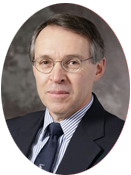|
pelinks4u EDITORIAL
written by Steve
Jefferies
 OCEANS
OF CHANGE OCEANS
OF CHANGE
…”by
almost any standard, many if not most of
the nation's 1,450 schools, colleges, and
departments of education are doing a mediocre
job of preparing teachers for the realities
of the 21st century classroom. America's
university-based teacher preparation programs
need revolutionary change—not evolutionary
tinkering.”
Speaking at Columbia University Teachers
College, Education
Secretary Arne Duncan lamented this week
on the quality of teacher preparation in America.
Significantly, it’s been just a few
weeks since this year’s Physical Education
Teacher Education (PETE) conference concluded.
Hosted with the prescient theme “Exploring
an Ocean of Change,” three great days
of presentations – and very little time
on Myrtle Beach – left me contemplating
our future.
To start with here’s a question we’d
better sort out before it gets Mr. Duncan’s
ear. Can we ever agree on the purpose of physical
education? Is it to develop skills, fitness,
brains, social skills or what? Trying to do
all we risk achieving nothing. And for Bonnie
Tjeerdsma and Suzan Ayers the striving for
tangible results risks squeezing the joy out
of simply moving. Too bad that joyful movement
doesn’t sell well on today’s education
menu, but as teachers let’s not forget
what initially motivated us into this profession.
Judy Rink alerted us to the confusion many
share about standards. The problem is that
pretty much any public school PE program can
claim to be meeting broadly based, general
standards. We all need to become more attentive
to calls for “evidence-based”
programs because that’s almost certainly
on our professional horizon. Whether we strive
to change kids' health or develop physical
skills that prepare them for a physically
active lifestyle, tomorrow’s curriculum
is going to demand evidence that we are doing
what we say we do.
Russ Pate, one of the nation’s leading
exercise scientists, informed us that much
of the current support for school physical
education as a means of combating declining
children’s health is coming from outside
of our profession. In other words, we are
not in control of our destiny. Despite conversations
about ways to involve physical educators as
school physical activity coordinators, we
persist in preparing future teachers for traditional
PE teaching roles. The implication to me is
that if we don’t adequately respond
and reform, private enterprise will likely
step in as school physical activity promoters.
Who’s for a national physical education
curriculum? Okay, no one, or at least no one
publicly (despite the fact that it is doing
quite well in England). But isn’t it
puzzling that we haven’t yet agreed
upon national outcomes? For example, is there
anyone who doesn’t think that kids should
be able to throw and catch? Sadly, many of
them can’t after 13 years of physical
education. Surely, it makes sense for us to
unite and identify some fundamental movement
skills that all kids nationwide should be
able to do competently? It’s no different
from performing basic multiplication or reading
or writing. Is that really so unreasonable?
Speaking of change, did you realize that
in Florida there are more than 100 full time
physical education teachers teaching online?
Currently these courses are focused on personal
fitness and lifestyle design, and are being
written to meet the Sunshine standards. Under
development are targeted physical education
programs for elementary schools. Many of these
schools today count recess to help them meet
the 150 minutes/week state requirement. While
online instruction is not what many of us
would prefer, maybe it’s better than
the alternative?
Earlier this year, after much discussion,
NASPE finalized a statement on the need for
physical educators to be physical activity
and fitness role models. You can read the
new paper on the NASPE web site. I’m
for it. I just can’t imagine going to
class and being taught a foreign language
by a non-speaker, learning the guitar from
someone who doesn’t play, or having
a math class from a teacher who can’t
solve the problems he poses. Arguments against
the need for teachers to be positive role
models for what they teach make no sense to
me.
Many of us struggle to maintain a healthy
weight, but in choosing to become physical
educators surely we committed to modeling
an active and healthy lifestyle? No one forced
us into this profession. At the risk of challenging
political correctness, this topic is resurfacing
in PETE programs nationwide. An especially
promising approach is having new PETE majors
focus on developing or maintaining healthy
lifestyles at the start of their professional
preparation, then monitoring progress in every
class through to graduation. Those of us who
plan to advocate active and healthy lifestyles
should put our own house in shape before offering
advice to others.
The PETE conference concluded with Georgia
State’s Mike Metzler sharing an
insightful overview of the history of professional
preparation and some of the challenges ahead.
In my mind, the confluence of the economic
recession, higher academic expectations, and
worsening obesity make reform – or as
Arne Duncan suggested, revolutionary change
- in PETE, essential and imminent. Hopefully,
the 400 of us who returned from Myrtle Beach
are up to the task.
If you’d like to agree, disagree or
expand on any of these thoughts please email
pelinks@pelinks4u.org.
Steve
Jefferies, Publisher
pelinks4u | 





